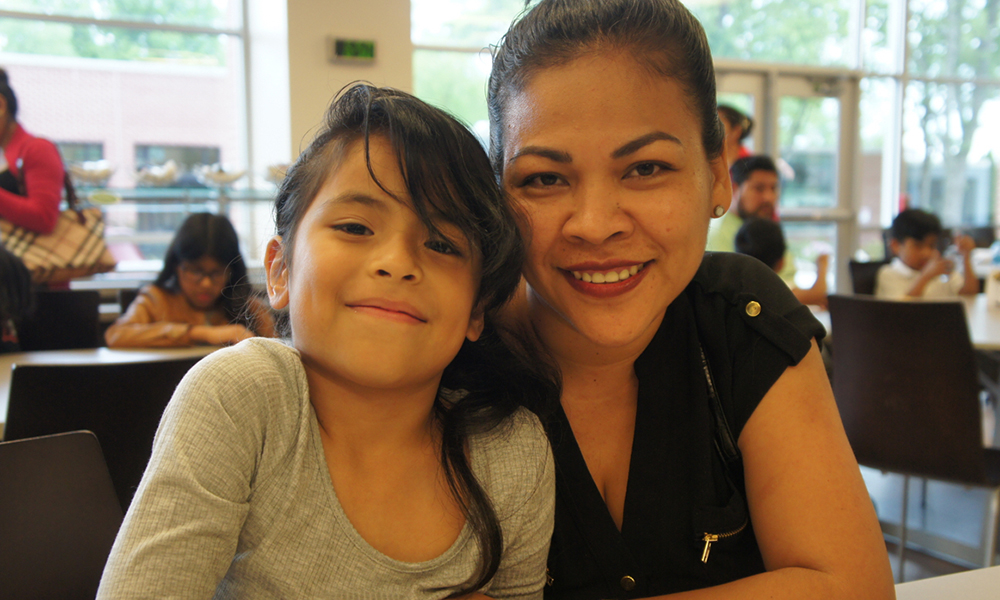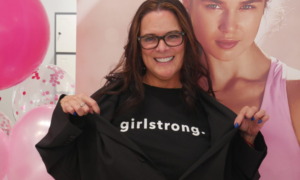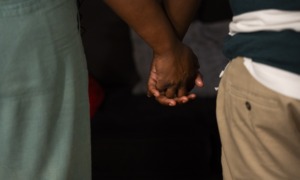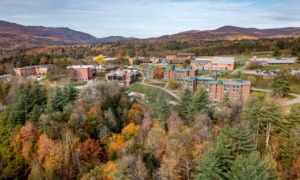ATLANTA — Children ran and played on a green lawn just outside the glass walls of Holy Innocents’ Episcopal School in Atlanta recently, as their parents met inside the shiny STEM building.
The kids, however, weren’t the students who attend this expensive private school, which offers 24 advanced placement classes on a 43-acre campus.
They were largely the children of Mexican immigrants from some of the poorest states in Mexico.
Since 1999, a carefully crafted summer program has been offered at the school in partnership with Horizons, a rapidly growing national nonprofit organization. Horizons Atlanta is its largest affiliate, and Holy Innocents one of its earliest sites.
“It helps her and entertains her,” said parent Rocio Avalos about the impact of the program on her fifth-grade daughter Laura, who’s attended every summer since first grade.
Laura translated for her mother, who described the benefits in Spanish.
“She’s met a lot of different people who’ve changed the way she sees the world,” Avalos said. She learns about problems in the world and how to deal with them, she said.
Partnering with colleges, independent schools
Horizons describes itself as transformative in the lives of low-income kids through a mix of academics, arts, sports and cultural enrichment.
It partners with independent schools or colleges, which provide their facilities and raise some of the funds. It serves the same kids summer after summer in a six-week program.
“The average student stays six out of nine summers,” said Mary-Kate Starkel, associate director for Horizons Atlanta, which serves 840 students at nine sites, including the private Atlanta International School and four colleges, including Georgia State University and Georgia Tech.
Kids also get support throughout the school year.
Having the program at a college or private school broadens kids’ horizons, Starkel said. It provides “access to other learning environments,” she said. “We want to expose them to environments other than what they attend every day.”
Spending time on a college campus allows a child to picture himself or herself as a college kid, she said.
Children in the communities served by Horizons Atlanta usually lose ground in the summer — the equivalent of two to three months of academic skills, according to the Horizons Atlanta 2017 annual report. In contrast, Horizons kids gain two to three months based on pre- and post-tests of the students, according to the report. They end up five to six months ahead of their peers who do not attend a summer learning program.
Each class of 15 is led by an experienced teacher, an assistant teacher and a third person who may be a college student volunteer.
“We have a trained reading specialist on site at each one of our programs” to
design instructional plans for individual students, Starkel said.
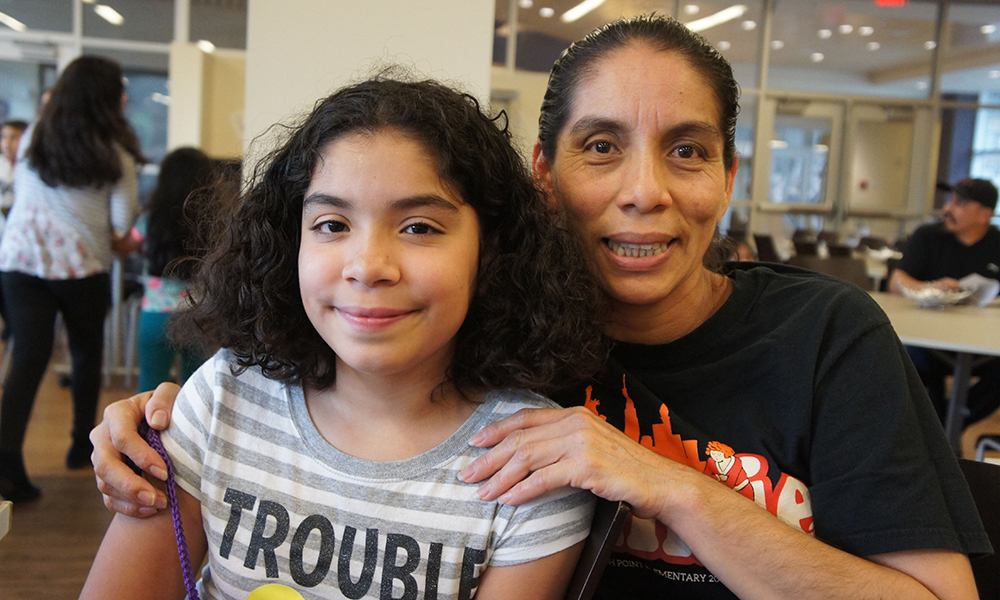
Fifth-grader Laura Avalos came with her mother, Rocio Avalos, to the parent meeting for Horizons Atlanta. Laura attends a public school in Atlanta, High Point Elementary, but has come to the summer learning program at Holy Innocents’ since first grade.
A wide world and its problems
Kids at the Holy Innocents’ site have 90 minutes of academics each day focusing on literacy and project-based science, technology, engineering and math activities. Then they do many other things.
Last year, Laura’s group visited the Georgia Aquarium, she said, where they learned about the sea creatures and their care.
They also took a trip to Serenbe Farms, an 8-acre organic farm in the planned community of Serenbe south of Atlanta.
In keeping with the Holy Innocents’ focus on creating global citizens and servant leaders, the youngest kids learn about hunger in the world. “We do a garden and a pop-up market,” said Horizons teacher Rebecca Neuman.
The summer theme for third- and fourth-graders is water and sanitation. Laura said that last year she learned about germs in water in places like Africa. A visitor came and talked about the problem of guinea worm, she said.
Kids in grades 6 through 8 learn about human rights.
In addition, all children in Horizons programs learn to swim.
Ninety-eight percent of Horizons students in Atlanta are eligible for free or reduced-price lunches at their schools. While Holy Innocents’ and the Atlanta International School mostly serve Latino kids, the other sites in Atlanta mostly serve African-American students.
At the parent meeting at Holy Innocents’, site director Vera Woods spoke to parents through an interpreter.
“Yes, Horizons is fun, with swimming and dancing. But our goal is that [children] have third-grade reading proficiency,” she said.
“The goal is to make sure your children don’t lose what they’ve learned in school over the summer,” Woods said.
We want them to “go back to school ahead of where they were,” she said.
During the year, kids are invited to attend a monthly Saturday school at Holy Innocents’.
The factors that make a difference
The fact that kids return each year plays a big role in Horizons’ impact, according to the organization.
It points to a Wallace Foundation/RAND finding that attendance and retention are the two factors predicting student improvement in math and language arts in voluntary summer learning programs. Horizons Atlanta reports an 81 percent retention rate summer to summer.
Combatting the summer slide is hugely important for low-income kids, according to Johns Hopkins researchers, who found that the academic gap between low-income kids and their more affluent peers is largely related to the difference in summer opportunities.
And kids who can’t read proficiently by the end of third grade are four times more likely to drop out of high school, according to research.
Horizons was started in 1995 based on a Connecticut program that had been evaluated by Yale researchers and found to slow summer learning loss. In 1999, a Horizons program was started at Holy Innocents’.
By 2007, the national organization had 13 programs in nine states. It now has an ambitious plan to more than double its reach.
By 2020, Horizons National plans to serve 12,000 students in 10 regional hubs, according to its strategic plan.
Site directors such as Kate Kratovil in Atlanta talk about the family feeling that comes from interacting with students and parents every summer and at events during the school year. Parents come to events and lead cooking or dance or other workshops for the kids.
During the summer, kids try new things and gain critical thinking skills through hands-on learning activities, Starkel said.
They experience a ”complete shift in confidence,” she said.


